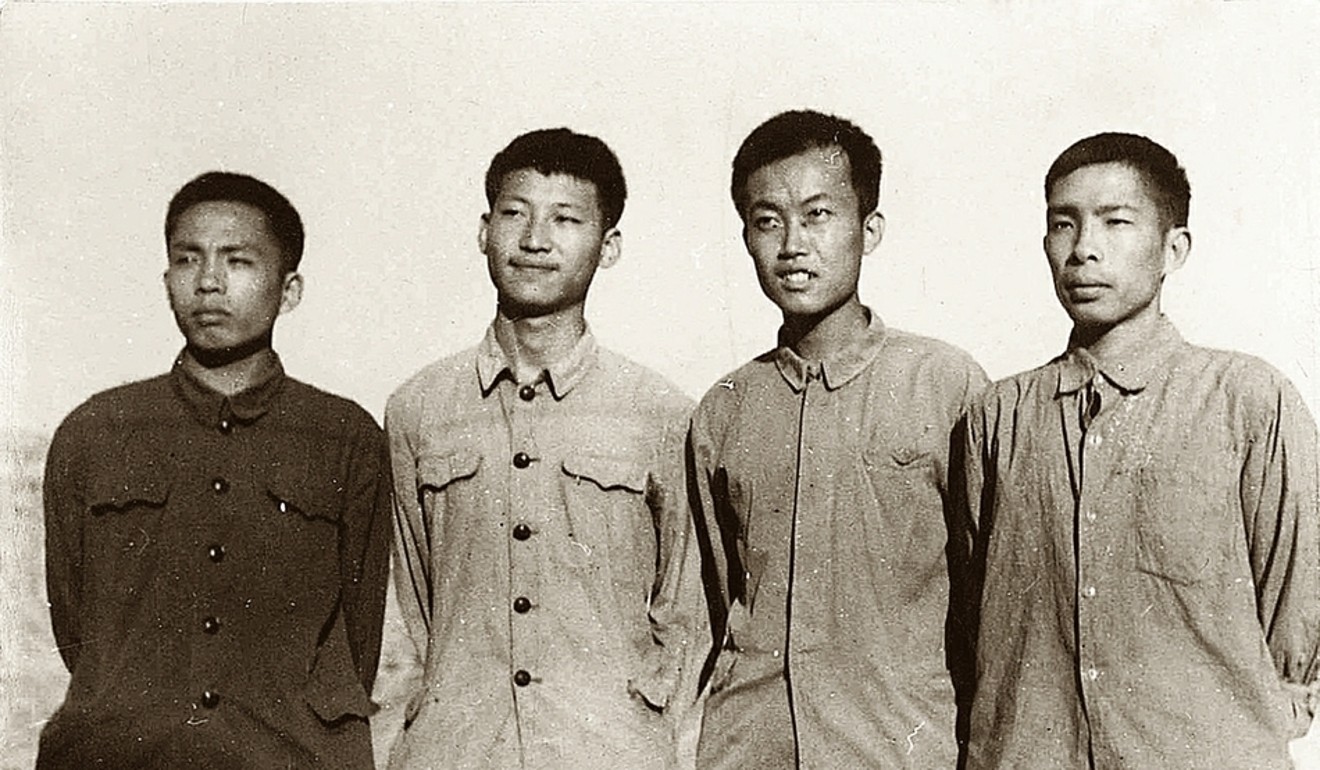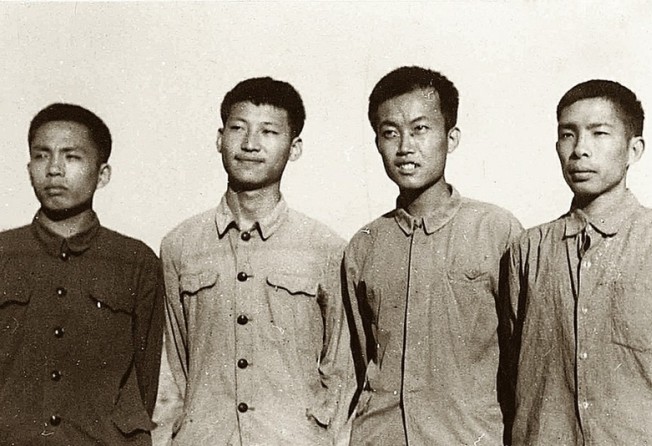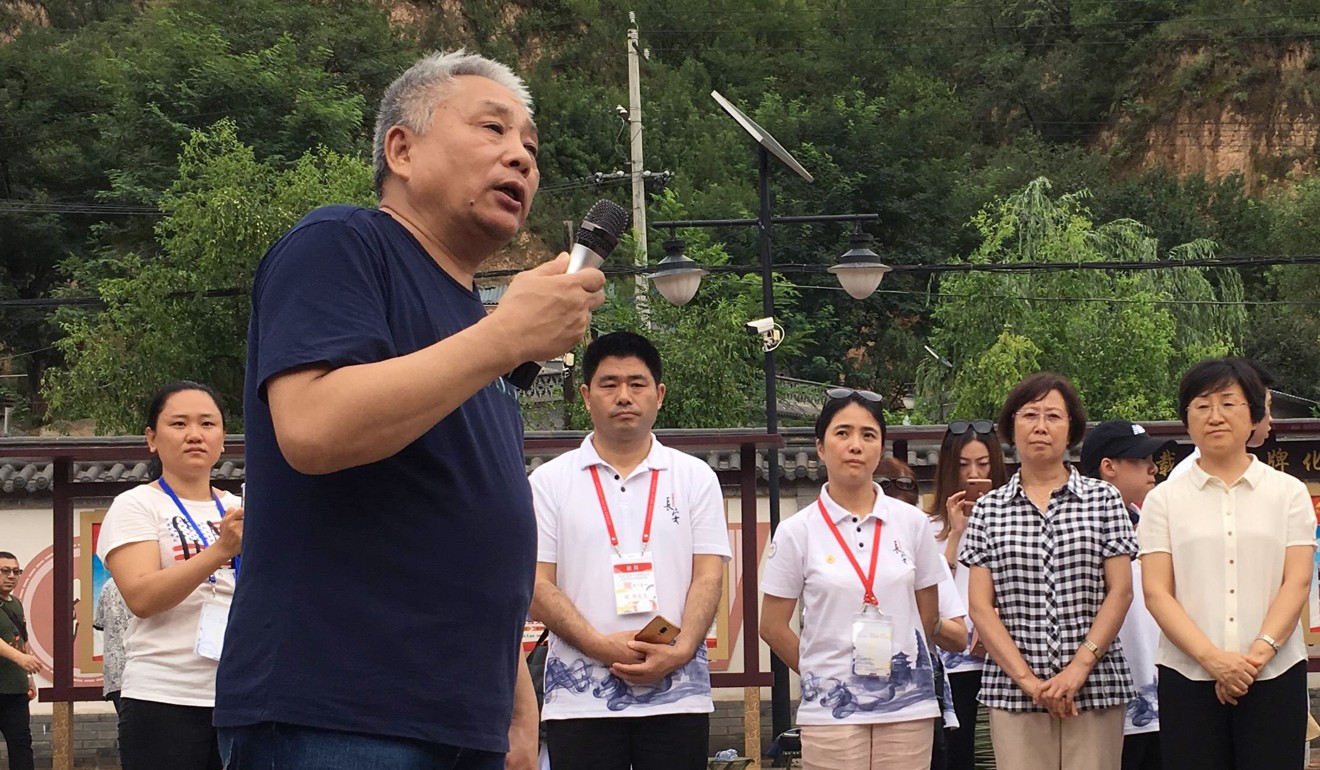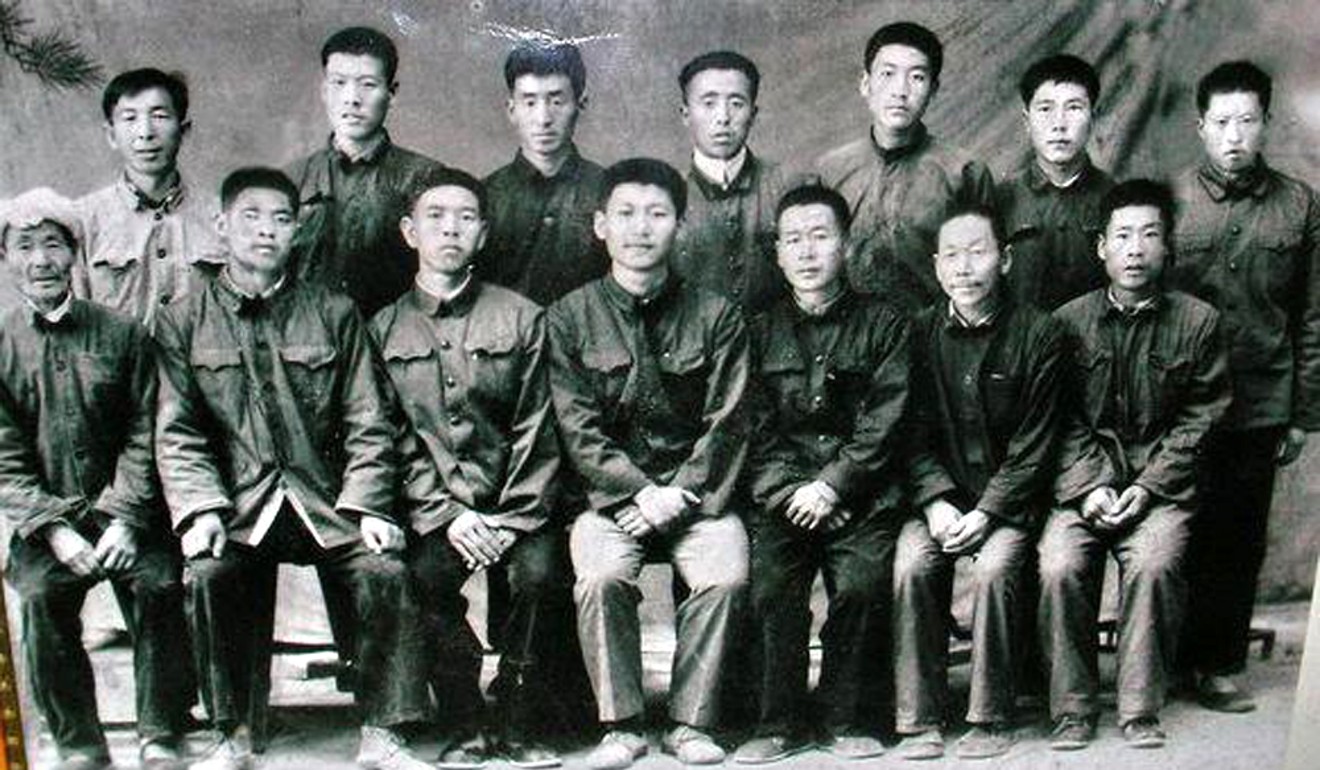
Hyped pilgrimages to Xi Jinping’s cave home doing more harm than good, says his roommate
Caution over tourism at the village of Liangjiahe, where the Chinese president spent his late teens as a youth sent to the country under Mao Zedong initiative

A former roommate of Xi Jinping from the days when the president was an adolescent toiling in an impoverished village in northwest China has said hype over their former cave home is doing the Chinese leader no good.
The comments of Lei Pingsheng, who shared cave dormitories with Xi for six years while the chaos of the Cultural Revolution engulfed China, come at a time when the backwater village of Liangjiahe in Shaanxi province has shot to fame as one of China’s must-see places since Xi took over as leader in 2012.
Lei was sent to Liangjiahe along with Xi in 1969 as “sent down youths”, under Mao Zedong’s campaign to send privileged urban youths to work in the countryside to get rid of their pro-bourgeois thinking.
Tours from across the country – under the pretext of learning from the president’s formative years – have flocked to Liangjiahe, and its growing popularity, despite no evidence that Xi or the leadership is encouraging it, has prompted some to express concern about building a personality cult around Xi.

Lei, a 68-year-old retired pharmaceutical scientist, said the hype had become too great and cooling it down was the right thing for the president.
“I think the [publicity about Liangjiahe] is too heated and should be cooled down – it would be positive and good for Xi Jinping,” he said when asked by the South China Morning Post about the recent debate over the so-called Liangjiahe studies.
“The residence is not higher than that of Mao Zedong and Deng Xiaoping,” Lei said. “Some cadres who didn’t know may exaggerate what happened in their accounts.”
The large-scale studies – launched by a group of social scientists in Shaanxi and looking at how Liangjiahe influenced Xi’s policies – drew criticism from overseas media and mainland intellectuals for encouraging a personality cult and was quietly suspended, suggesting that Beijing has realised the problem and is trying to redress it.
But Liangjiahe continues to be a living shrine to the president, with a stream of Communist pilgrims from around the country paying homage.

According to a guide at the village, Liangjiahe has hired about 40 guides, mostly young women, to tell visitors stories of how Xi never lost his determination to join the Communist Party despite his applications being repeatedly rejected because his father had been purged in the Cultural Revolution, and of how he arrived with heavy luggage packed with books and studied late into the night under a dim light.
The village has a fleet of about 50 electrical vehicles to collect visitors from the visitor centre, down the hillside. Mainland media estimates have put the number of visitors at an average of 12,000 to 13,000 per day during peak season.
Around the time of the Cultural Revolution, Mao felt the country’s urban population had lost touch with its vastly underdeveloped rural population, and launched the “Down to the Countryside” movement.
Between 12 million and 18 million young city dwellers, sometimes against their will, were sent to villages between 1950 and 1976 to work with local peasants. The movement was criticised for causing huge disruption to young people’s formal education, but also became a bonding experience that shaped the lives of a generation.
Xi, who had been born to a prominent family and enjoyed a privileged upbringing as the son of a vice-premier, was 15 years old when he was sent to Liangjiahe. He has often looked back at his seven years in exile as having shaped his character.

“Nothing strengthens a man’s character better than hardship,” Xi wrote in an article published by Xinhua in 2012.
“The seven years of hardship in rural areas is a great experience for me. After that, whenever I encounter difficulties, I will tell myself that if you could get things done then, you must be able to get things down now.”
Lei, his cave dormitory roommate, was close to the president. Now living in Beijing, he was interviewed in a book published last year by the Central Party School on Xi’s early years as a “sent-down” youth. The book, Xi Jinping’s Seven Years as an Educated Youth, has become a must-read in ideological classes for local party officials.
Lei came from the same elite Beijing Bayi High School as Xi. Both his father and Xi’s father, Xi Zhongxun, were purged during the Cultural Revolution, so going to the countryside as an educated youth was inevitable because they were politically discriminated against, Lei said in that interview.
Although Lei dislikes the media hype, the days in Liangjiahe represented an important chapter for both him and Xi that is still relevant today, he told the Post.
He felt that there was “too much boasting about big houses and big roads” in China’s media and said officials should focus on real hard work, such as “research and innovation”.
Back then, neither he nor Xi could have imagined that one day Xi would become the top leader of China, Lei said. Yet he believed those early experiences prepared Xi for his future career.
“Xi was tough and willing to take on hard tasks,” Lei said. “Unlike me – I’m just not the material to be an official.”
What does he remember the most vividly about their days in Liangjiahe?
“Tiredness,” said the 68-year-old. “It was so tiring to do all that manual labour.”